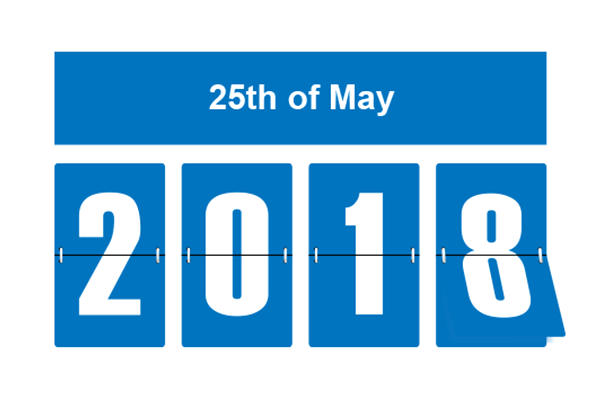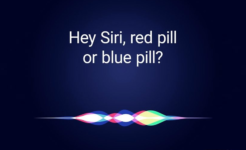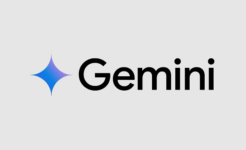
What is GDPR? – BBC Click [Video]
Video uploaded by BBC Click on May 22, 2018
The Copyright Law is Going to Shock Everyone in Europe
Yesterday my boss reached out to me and asked if I could write a blogpost about Article 13 that is to come into effect in Europe soon. I agreed and began to do my research about it. As I started reading up about it, I was shocked and surprised to discover what it was, and what this was going to mean for Europe.
The existing copyright law in Europe right now, allows people to use texts, images, and music for criticism, research, pastiches, and parodies. Our own law employs the “safe harbor” principle. Section 230 of the Communications Decency Act, part of the Telecommunications Act of 1996 reads: No provider or user of an interactive computer service shall be treated as the publisher or speaker of any information provided by another information content provider.
Quoting this Act itself can be considered a copyright violation under Article 13. No, I am not joking and being completely serious.
If Article 13 comes into effect (and this is most likely to happen), every European website will have to check the uploaded content for copyright violations. From now on, any text ever put online… any image, any piece of code, tweet or blog entry will be considered someone else’s copyright. For example, if you’re discussing a novel on GoodReads and use a quotation to back up your opinion… you are now violating Article 13. The content detecting robot will delete your post or maybe just the quotation, either way it may completely ruin your message. There’s going to be no embodied tweets and Instagram pictures/postings. This will also mean no memes, no demotivators, and no discussions. The new law is going to kill the developers’ co-working platforms like GitHub, where pieces of someone’s code are uploaded all the time.
The problem is that errors are robotic. I have a friend who lives in Germany, the country with one of the most severe copyright laws. She uploaded a home video featuring her two cats playing with each other. There was no other background sound to the video other than the cats’ meows and her laughter. Yet, YouTube decided that she used a song by Christina Aguilera. The singer got a notification about it and was asked to delete her video. She of course filed a complaint, but the fact that a robot from a big company like Google, was not able to distinguish the difference between a Christina Aguilera song and laughter, shows how much errors robots can make. I also have to add that with my sincere dislike for modern music, it most definitely does not resemble laughter.
Nowadays the internet is all about sharing. Sharing one’s opinions, political views, tastes, special moments, and so on. My German friend risked to lose her YouTube account because of an imperfect robot algorithm. She’ll probably think twice before uploading any of her content again. The internet is also all about freedom, especially the freedom to express yourself. There are no limitations or restrictions online. If I share a tweet, everyone with an internet connection from California to Yorkshire or even Portugal is bound to see it sooner or later. Therefore, Google will have to filter content around the globe. While Google is an international IT giant that can afford such expenses, many smaller enterprises and startups cannot. So, they are going to vanish as well. It’s like a domino effect.

Article 13 is a more dangerous threat for the freedom of Internet than the net neutrality rollback
Involuntary, the content detecting robots will become the tools of oppression and censorship. Involuntary, because robots don’t have their own will or consideration, but those who came up with Article 13 do. Right now, tweets from conflict areas, from various natural disaster scenes can be retweeted and shared via social media within minutes, bringing the events to light. With content detecting robots, information will be effectively blocked. In terms of the information environment we’ll be going forty years back.
Article 13 is a more dangerous threat for the freedom of Internet than the net neutrality rollback.
Look who is approving the new law! The members of the EU’s Legal Affairs (JURI) Committee are all born in the mid-1960s and mid-1970s. This means that they grew up and lived half of their lives in a completely different media environment. They can’t grasp the web concept let alone the consequences of their decision. They want their cozy world back, where information was carefully channeled to them by big media bosses in funny looking suits and broad ties. No, I’m not an ageist, because Vint Cerf, creator of TCP/IP, the internet’s fundamental protocol was born in 1943; Tim Berners-Lee, the web’s inventor was born in 1955, and they both think that the new law is dreadful. As does cryptography expert Bruce Schneier, Wikipedia co-founder Jimmy Wales, Internet Archive founder Brewster Kahle, and many many others. Trust them, the guys created the Internet and they know what they are talking about.
They all wrote a letter to the European Parliament saying:
“As creators ourselves, we share the concern that there should be a fair distribution of revenues from the online use of copyright works, that benefits creators, publishers, and platforms alike.
But Article 13 is not the right way to achieve this. By requiring Internet platforms to perform automatic filtering all of the content that their users upload, Article 13 takes an unprecedented step towards the transformation of the Internet from an open platform for sharing and innovation, into a tool for the automated surveillance and control of its users.”
Then the correspondents list the possible consequences, the decline of freedom of speech and the small IT businesses among them.
Will the authorities listen to the voice of the Internet founders? I may sound a bit disillusioned, but I honestly doubt it. Free Internet is the threat to the existing order of things. It has grown from the geeks’ toy to the indispensable tool of communication. Internet gave a voice to too many people from the point of view of governments. It even brought a new currency, a new mentality, and a new community. The powers of the world just don’t know how to deal with them, they have no manuals. They have to either change or try to block the changes. We all see what they’ve chosen. I’m afraid we have just months or maybe weeks before the same initiative surfaces in the Senate.
Links
- General Data Protection Regulation – Wikipedia.
- Everything About Apple’s Products – The complete guide to all Apple consumer electronic products, including technical specifications, identifiers and other valuable information.
- Everything About Microsoft’s Products – The complete guide to all Microsoft consumer electronic products, including technical specifications, identifiers and other valuable information.
- Do you want to avoid any trouble with the new copyright law? Get rid of your old computers by selling them for top dollar.






Facebook
Twitter
RSS